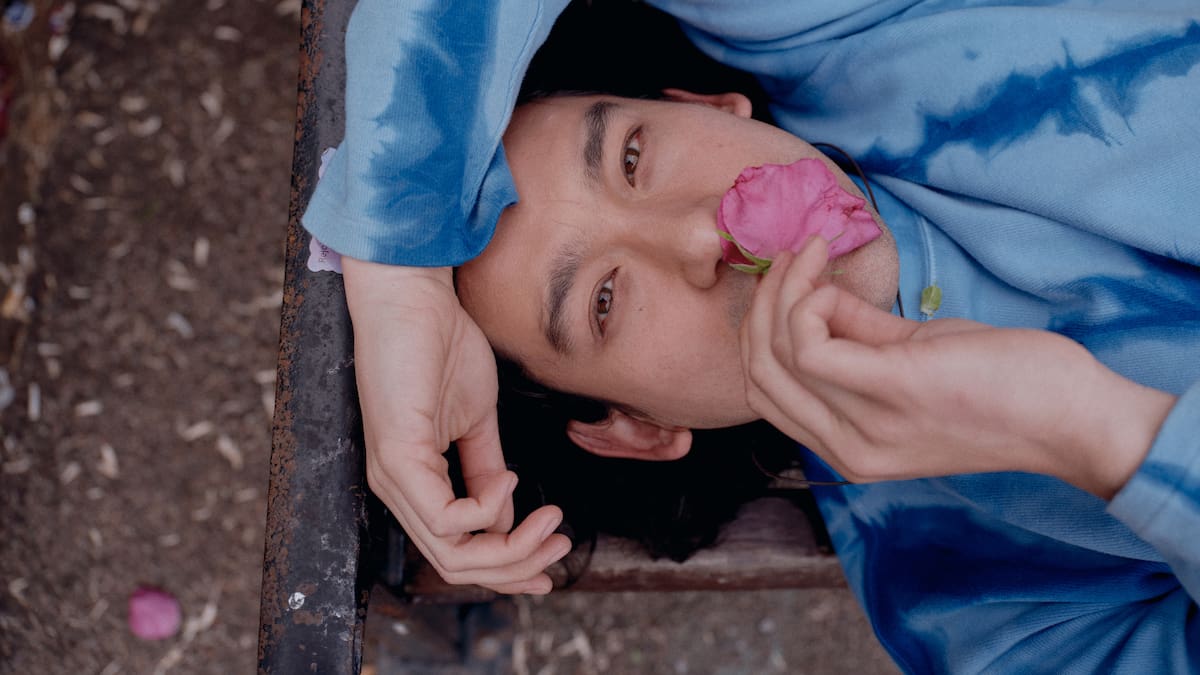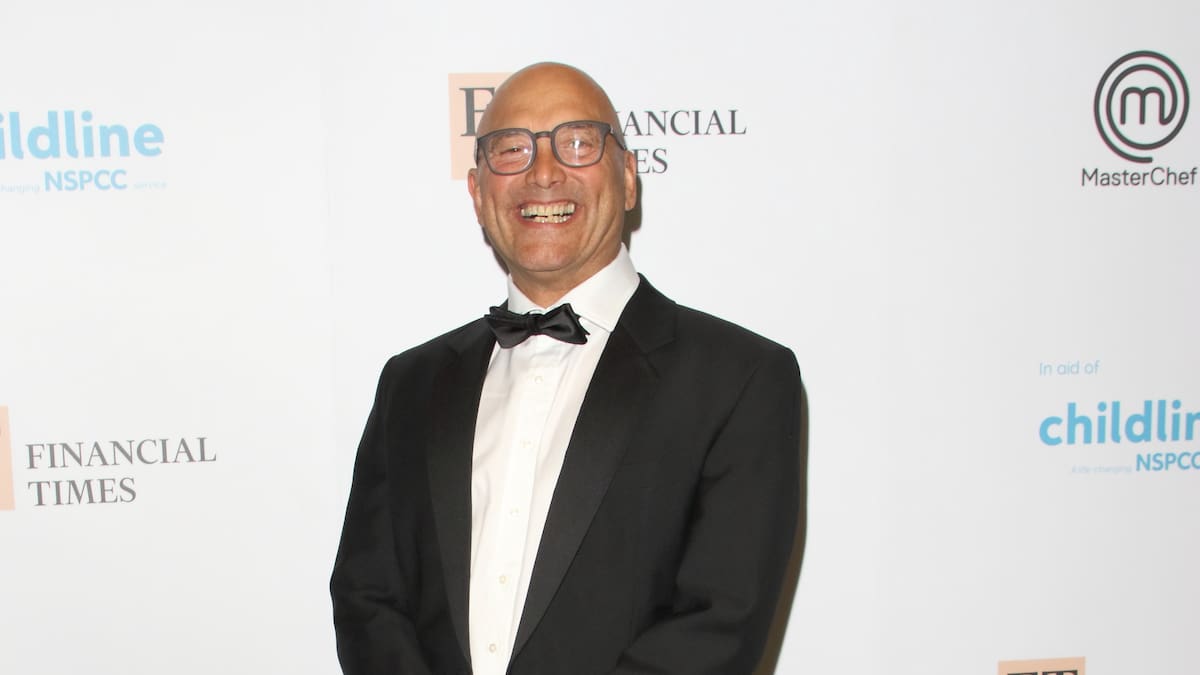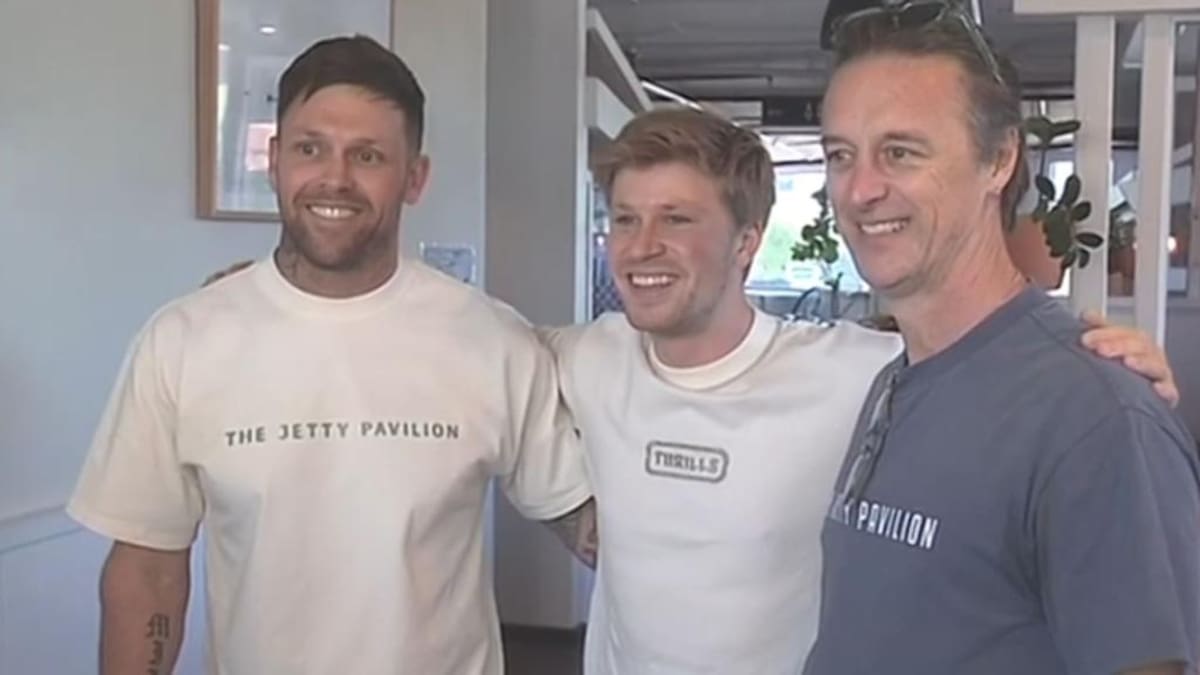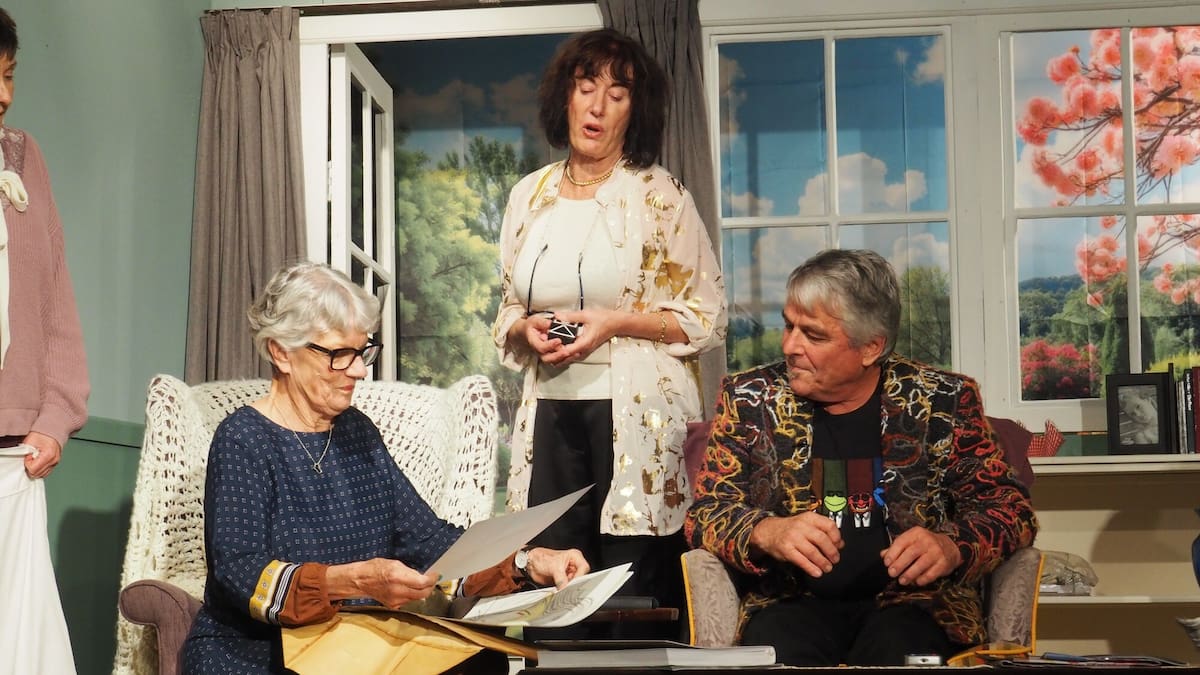American audiences, though, know Sharpe best from his chameleonic run of recent acting gigs: the stoic tech hunk in Season 2 of HBO’s The White Lotus; the earnest tour guide in Jesse Eisenberg’s Oscar-winning movie A Real Pain; and now, as Felix, the enigmatic indie musician in the rom-com Too Much, Lena Dunham’s new Netflix series which landed on Netflix on July 10.
Sharpe – wryly funny, gently reflective and as generous about his collaborators’ work as he is modest about his own – said he was drawn to the role of Felix because he has “a bit of a front, and on one level, maybe he thinks he’s cool. But he’s also very obviously quite vulnerable”.
Spiritually somewhere between Girls and a Richard Curtis film, Too Much is based on Dunham’s own experience of moving to London and living out a British love story quite unlike those she had loved watching in TV period dramas.
Dunham said in an email that as soon as she met Sharpe, she knew she’d found the right actor to play Felix, who is based on her husband, British Peruvian musician Luis Felber. But it was only when Sharpe gave Dunham notes on the first round of scripts that she realised “how intense a value-add his voice and vision would be,” she said. “We got so lucky,” she added. Sharpe’s background in writing and directing was “only ever an asset”.
Felix is the bewitching, brittle frontman of a band of 30-somethings still playing nondescript London pubs. He’s a few years sober, figuring it out and sleeping on a friend’s couch. “We used to do ecstasy in the morning, cocaine at night, maybe a little foursome and order a pizza afterwards,” Felix’s frustrated host tells him: “Now you’re monogamous and gluten-free.”

Throughout production, Sharpe’s conversations with Dunham influenced the shape of the character. “Will was so generous with his own stories, his own history,” Dunham said.
Felix was always written as mixed race, like Felber; when Sharpe was cast, the character got a Japanese mother (played by Kaori Momoi) and a white father (Stephen Fry), like Sharpe’s parents. After reading the script, Sharpe also suggested that “Remen,” his character’s Jewish last name, would instinctively be read as “Ramen” when he goes to sign up for unemployment benefits, and that “Felix Ramen” should also have been Felix’s racist nickname at the snobby private school he attended.
“It’s wild how many things about Felix felt like they were just lying stagnant until Will came along to breathe life into them,” Dunham said. From Felix, Sharpe learned that he really liked wearing nail polish, and for special occasions he now wears the same bottle they used on set.
Sharpe and Megan Stalter, an American comedian who plays a character based on Dunham, improvised a lot in their scenes together. “He’s very silly and funny and more weird – like me – than you think,” Stalter said. It was unusual for Stalter to feel “so comfortable with a straight man” as she did with Sharpe, she said. She put this down to his sensitivity, and commitment to his character.
Sharpe is clear that while he brought a lot of himself to Felix, “I have never been directly autobiographical.” Recently, though, he had come to realise that his work, and especially his writing, was a way of figuring out his own experiences in ways he wasn’t necessarily aware of at the time.
Sharpe was born in London, but his father’s work as a stockbroker had prompted a move to Tokyo before his first birthday. When Sharpe was 8, the family – he has two younger siblings – moved back to England and settled in Surrey, a wealthy region southwest of London.
When Sharpe wrote his first TV show – the dark comedy Flowers, starring Olivia Colman, which aired from 2016 for two seasons on the BBC – he created a fish-out-of-water role for himself: Shun, a naive but troubled Japanese man who moves in with a creative but dysfunctional family.
Sharpe said he had wanted to find a way to bring the Japanese comedy he loved to an English countryside setting. Now, he says, he understands that Shun was also about working through his feeling of “being a visitor everywhere” after his move to England. “A lot of what I write seems, in the end, to contain some of that,” Sharpe said.
Over the years, Sharpe “worked very hard, I don’t feel shy about saying that,” he said. He won a Bafta for his role as a self-destructive escort in the BBC’s Giri/Haji and directed Colman again in the true-crime miniseries Landscapers. Along the way, onscreen diversity increased, as “other braver, smarter, cooler people than me” managed to get projects made, Sharpe said. (He pointed to creators like Michaela Coel and Donald Glover as inspirations.)

By early 2023, when Eisenberg wanted to cast Sharpe in A Real Pain, he looked at Sharpe’s writing and directing credits and thought, “He’s doing what I want to do,” Eisenberg said recently by phone. “He became, for me, an aspirational figure,” he added. On the movie’s set, “I would call him a mentor, but really, more what he was, was just this complete rock,” Eisenberg recalled, adding that Sharpe offered ideas as well as assurance.
For Sharpe, being able to watch how other directors work on set was a “a weird privilege,” he said, adding that he had learned something from every production he had worked on: Eisenberg was precise, and “so mindful of everyone’s feelings”; Mike White, the creator of The White Lotus, modelled how to keep a show’s voice while also giving audiences “what they want”; and Dunham was “so interested in everyone, and in all corners of the story”.
After a stroll through woods around the cafe, Sharpe was ready to head home to practise another skill set: parenting. He is the father of a 3-year-old girl and a boy, 5, with Loki actor Sophia Di Martino, who he has been with since 2009. However many roles he can play on set, with his children he is the “butler,” he said with a laugh.
This summer he will be back in the director’s chair to shoot Prodigies, an Apple TV+ rom-com series he will create and star in, opposite Ayo Edebiri. The pair will play former child prodigies in a long-term relationship, who are questioning where they’ve found themselves in their 30s.
When he made Flowers, Sharpe’s mindset was, “Of course, I shall remain on the periphery,” he said. Now he won’t just be leading Prodigies. The show’s exploration of the pressures of fulfilling your potential, he said, had “inched slightly closer to some things from my own life”.
This article originally appeared in The New York Times.
Written by: Eleanor Stanford
Photographs by: Charlotte Hadden
©2025 THE NEW YORK TIMES






